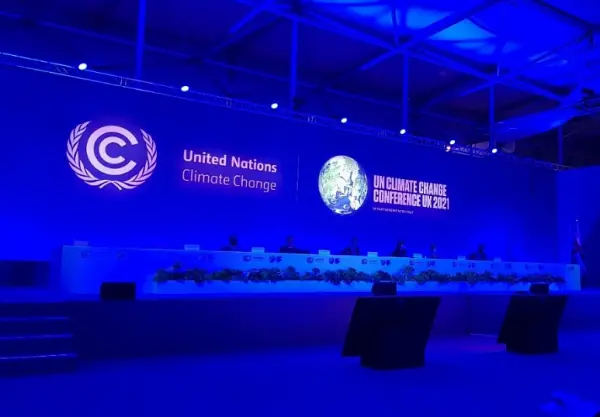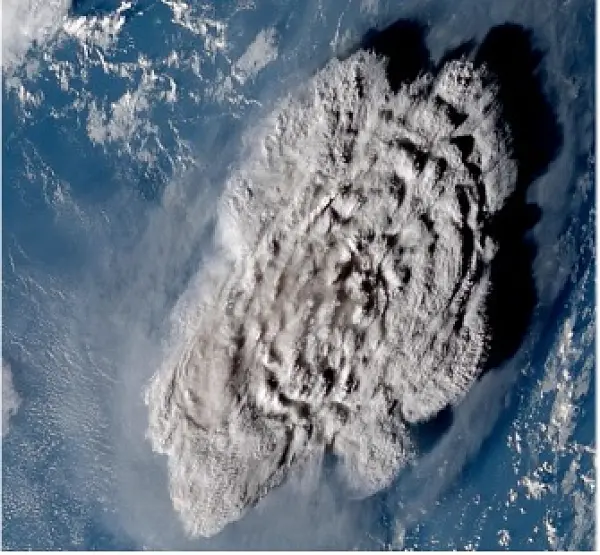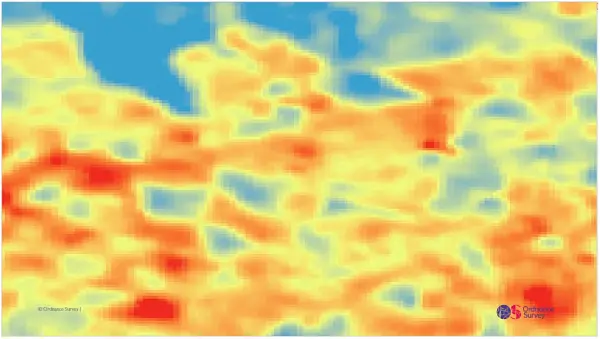United Kingdom
- Home/
- Partners/
- Member Governments/
- United Kingdom



This year’s GEO Week comes as I step down from the role of UK Principal to GEO. I am moving on from the Defra Chief Scientific Advisers Office to work on new environmental science challenges. In my time as UK Principal, I have seen GEO’s work on climate action grow steadily, from the establishment of the Climate Change Working Group to its active engagement with the UNFCCC Research and Systematic Observations team and interventions on the panel for the “Earth Information Day for Climate Action – Perspectives from the UK Presidency” event at COP26. I have welcomed the increasing engagement of the UK research base, including more recently from the private sector, in GEO work programme initiatives. I am therefore pleased to have been able to confirm the UK’s ongoing financial and technical support to the work of GEO. I am confident that the UK’s engagement with GEO will continue to go from strength to strength through its strong network of committed stakeholders, and I look forward to the further realisation of GEO’s mission in its Post-2025 era.


The UK community of research experts have continued to be engaged strongly with the GEO programme of activities, supported by UK government funding mechanisms including notable grants from United Kingdom Research and Innovation (UKRI) in this year and from government agencies noted in this statement. International collaborations, such as those initiated through GEO, are very important for UK scientists. We are particularly focussed on trusted services and data to meet the GEO challenges and to exploring the long-term development of co-operating systems which make a difference to policies and people. Climate science and carbon mitigation are critical challenges for UK and world research. The GEO work around forestry and agriculture is a particular interest and value to the UK science base, particularly the linkages between net carbon emissions in the Paris Agreement context with ecosystem health and food security. Also, ongoing efforts to respond to the UN ocean decade are to be supported. The GEO Climate Change Working Group has an important role to play. We also strongly endorse efforts to respond to hazards and disasters in a more resilient and timely fashion. GEO offers mechanisms to bring together international bodies and further engagement between observational, research, meteorological and service delivery agencies will benefit the advances that we all want to achieve.


The global geospatial and Earth observations communities are inextricably linked. We must do more together to understand our changing planet, to help our international system make more informed decisions about how to respond to climate challenges, and to help governments and societies mitigate and adapt. We were so pleased to have Yana, and some of the wider UK GEO community, present at the Cambridge Conference earlier this year, and to work together to bring GEO into our conversations with the UN Committee of Experts on Global Geospatial Information Management (UN-GGIM) in August. Bringing National Mapping and Geospatial Agencies together with the EO experts can only strengthen our global response to these pressing issues – working together, GEO can unlock EO.


This year’s GEO Week comes as I take over as the new UK Principal, and I am excited to take up the mantle from the previous Principal in this unique and valuable international group. My thanks to Dr Robert Bradburne for all his excellent work. It has been an exciting year for the UK Earth Observation (EO) community. The UK government has invested significantly to bolster the high growth sector into the long term, with EO satellites now supporting an estimated £106 billion of UK GDP (5.1%). In November 2022, the UK Government announced over £200m investment for the UK to protect and strengthen the EO sector, enhance our national capability and deliver our National Space Strategy ambitions. In May 2023, ministerial responsibility for civil EO policy transferred to the Department for Science, Innovation and Technology (DSIT) – including GEO principalship. This aligns with the UK’s strategic objective under the National Space Strategy to remain at the forefront of EO technology and know-how. In July 2023, the UK published the National Space Strategy in Action, which defines the next steps we will take in delivering the Strategy, including our civil EO priorities. These priorities set out the ambitious, sector-specific outcomes to deliver long-term sustainable growth and support innovative use of EO for both commercial and public services. Then in September, the UK Prime Minister secured a bespoke deal with the EU that will see the UK participating in the Copernicus component of the EU Space programme from 1 January 2024. This is a landmark moment for scientific and space collaboration between the EU and the UK. It comes at a crucial time, where the Copernicus space infrastructure and its information services will evolve further and their contribution to understanding and acting on environmental and climate change challenges is more important than ever. In my short time as UK Principal, I have already observed GEO’s growing commitment to robust climate action. I am therefore pleased to confirm the UK’s ongoing financial and technical support to the work of GEO programmes, including the UK’s contribution to the Global Ecosystems Atlas – and I encourage other GEO members to do the same. The UK looks forward to co-chairing an event with the GEO Secretariat at COP28 later this year, showcasing the value of space in protecting and restoring nature. In conclusion, this year has been transformative for UK EO, putting us in a strong position from which to shape the future of global EO in partnership with international colleagues. I am confident that the UK’s engagement with GEO will continue to go from strength to strength through its strong network of committed stakeholders, and I look forward to many further achievements in the years to come.


The UK EO community continues to be very active internationally, including within the GEO programme of activities. International collaborations are fundamental to our research and infrastructure activities and have led to many valued relationships around the world. The UK is particularly focussed on initiatives which can make a big difference through research and innovation supporting societal benefit and policy through more operational activities. Observation of evolving landscapes, ecosystems, wildfire regimes and heatwaves are all key to resilience, recovery, lower costs, and healthier lives. We are keen to see GEO make effective contributions in these areas in support of other agencies and action plans. Climate science and carbon mitigation continue to be critical challenges for UK and world research. The UK is keen to ensure that new satellite missions are supported to achieve their full potential, including future operations, and this includes critical ground-based systems. In much of GEO’s implementations, integrated systems are needed which include in situ data and models; digital twins offer much in coupling current observations with predictive capabilities. As climate change continues to take hold, there is an increasing link between climate resilience and disaster preparedness and response. The UK supports the international EO community to play an active role in demonstrating timely information and sees that countries can work together in GEO to achieve greater impact globally and in-country.


We know that using place as a lens for understanding the world enables society, businesses and governments to respond to global challenges. Gathering and linking data from across a wide range of sources in space and on the ground needs an authoritative foundation layer of data to ensure that we can rely on the answers they are providing. Geospatial organisations have the know-how and the existing data infrastructure needed to make the most of the unique value that space technology offers from increased currency or different sensor types. We have been pleased to support the development of GEO over the last few years working closely with the GEO Secretariat to share our geospatial know-how and contributing to activities such as the GEO Ministerial Working Group on behalf of the UK. I know that GEO is looking forward to starting its next chapter as it moves forward under its new strategy Earth Intelligence for All.

